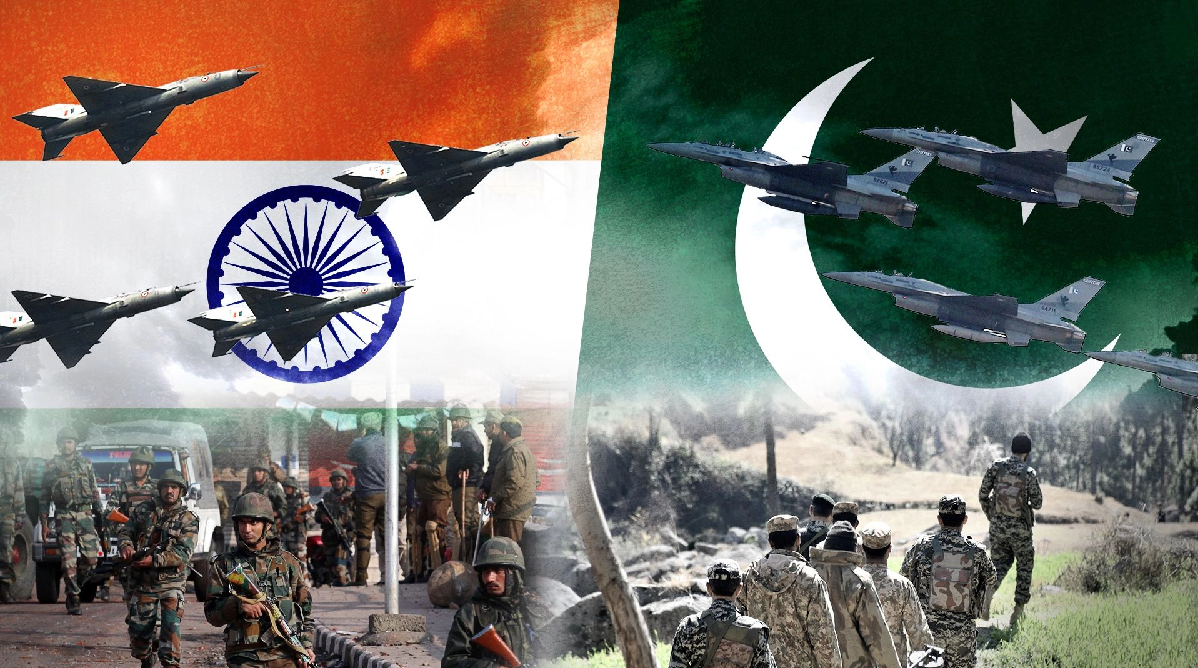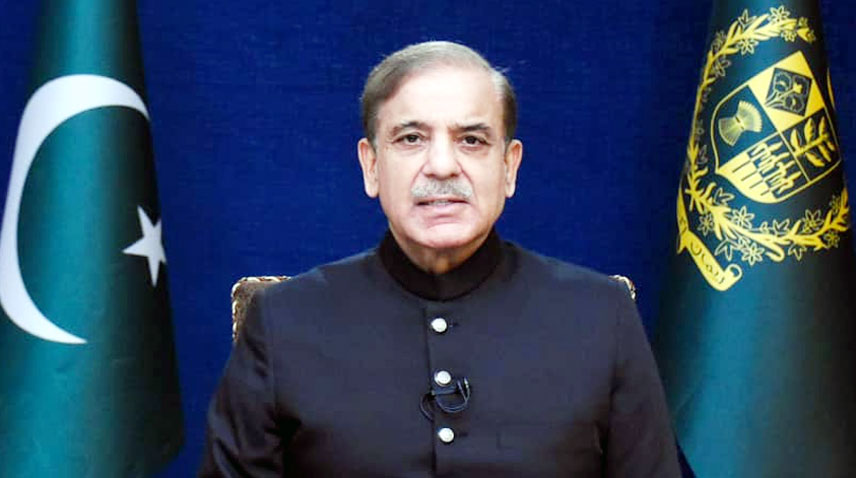The Dangerous Escalation of India-Pakistan Tensions: A Critical Examination
When India attributes any terrorist attack in its illegally occupied Kashmir — whether home-grown or linked to Pakistan, specifically to Lashkar-e-Tayyaba (LeT) — or blames any non-flushing toilet in India on the ISI, creating a war hysteria driven by arrogance and hubris without conducting impartial investigations and ignoring international calls for restraint, it is an abhorrent display of subpar statesmanship. Such behavior is unworthy of a middle power that aspires to be a significant global player, casting serious doubt on its credentials.
Escalating Tensions: A Dangerous Miscalculation
When Indian leadership, in pursuit of petty political gains and cheap theatrics, escalates tensions by climbing the “Escalation Ladder” only to find it impossible to de-escalate without risking a military showdown with the much smaller Pakistan, this reveals a dangerous miscalculation. Furthermore, when New Delhi, under the pretext of the reprehensible carnage in Pahalgam, seeks to scrap the Indus Water Treaty of 1960 with Islamabad — an agreement that has endured even through previous wars — it demonstrates premeditated, wanton disregard for international obligations and the rule of law.
Unprovoked Military Strikes: Reckless and Callous
When the Indian military launches air and missile attacks on 24 locations across six cities, not only in Azad Jammu & Kashmir (AJK) but also within Pakistan’s borders, resulting in the deaths of over 36 civilians — including women, the elderly, and children — it is a reckless and callous act unbefitting of a professional military. When these air strikes are followed the next day by drone strikes, primarily targeting civilian areas in Pakistani cities, it signals outright arrogance, self-aggrandizement, and misplaced superiority. It reflects a bloated sense of self-righteousness, a lack of accountability, and an air of unwarranted haughtiness.
The ‘New Normal’ and Its Consequences
India’s actions clearly establish a ‘New Normal’ in the region. In 2019, following the Pulwama terrorist attacks, Indian Air Force (IAF) jets crossed the international border, bombing alleged LeT seminaries in Balakot, Pakistan. While this attack was largely symbolic, the recent missile strikes from IAF fighter planes and loitering munitions via drones crossing the Line of Control (LoC) and the International Border were a far more provocative and unprovoked act, resulting in the cold-blooded killing of Pakistani civilians.
India’s message seems clear: “Any terrorist attack in India will be linked to Pakistan, leading to military reprisals. This is the New Normal. And Pakistan must learn to live with it.” However, India must understand that this situation will not end in their favor — and certainly not if Pakistan has a say in it.
The Humiliation of Pakistan: Miscalculating Vulnerability
India assumes that Pakistan, weighed down by its internal political divisions, economic difficulties, and a media campaign portraying it as a haven for terrorism, is in a vulnerable position. This belief has led India to escalate tensions in the hope of humiliating and browbeating Pakistan. Yet, this is far from the truth. The notion that Pakistan will simply capitulate is a fallacy.
Misconceptions About Conventional War: The Nuclear Threshold
Indian policymakers who believe that a conventional military showdown with Pakistan is feasible, even under the nuclear overhang, are gravely mistaken. The conditions of conflict are vastly different from previous instances like the Kargil War, and any hostilities against Pakistan’s mainland would quickly escalate to a nuclear confrontation. Pakistan’s nuclear deterrence, particularly its second-strike capability, remains formidable and must not be underestimated.
The Nuclear Deterrence: Calling Pakistan’s Bluff
India has repeatedly misinterpreted Pakistan’s nuclear deterrence capabilities, often underestimating Pakistan’s resolve to protect its sovereignty. The false narrative, particularly propagated by Indian media outlets like NDTV, that India has successfully “called Pakistan’s nuclear bluff,” fails to understand the intricate balance of nuclear deterrence and the irrevocable consequences of nuclear escalation.
Lessons from the Past: Avoiding the Path to Nuclear War
In 1987, during the tense aftermath of India’s Operation Brass Tacks, Pakistani President Zia-ul-Haq warned Indian Prime Minister Rajiv Gandhi about the consequences of a nuclear confrontation. Zia’s reminder remains relevant today: any war between India and Pakistan could escalate into a nuclear conflict, with catastrophic consequences for both nations and the entire region.
The Israeli Nexus: Modi’s Dangerous Path
Modi’s adoption of Netanyahu’s playbook is leading India down a perilous path, one that risks nuclear disaster. India is not Israel, and Pakistan is not Palestine. Modi’s ambition to dominate South Asia will crumble if he fails to recognize the severe limitations of India’s military power, particularly in the face of Pakistan’s nuclear deterrence.
Pakistan’s Resolute Response: Shattering the ‘New Normal’
Pakistan’s response to Indian aggression was measured yet decisive. The Pakistani military’s strength lies not in sheer numbers but in its qualitative edge, morale, and resolve. This response, which targeted over 30 locations across India, proved that Pakistan is not a meek nation, and India’s ‘New Normal’ has been shattered.
A Clear Nuclear Policy: Deterrence and Strategic Importance
To prevent further escalation, Pakistan must announce a clear nuclear policy, asserting that it will go nuclear in the event of any violation of its land, air, and sea borders. This policy would ensure that India can no longer use military aggression as a tool of coercion.
The Role of International Diplomacy: A Need for Restraint
The Trump-facilitated ceasefire offers hope for peace in South Asia, but Washington must do more to rein in India’s aggressive actions. Without international pressure, India will continue its destabilizing tactics, leading to further conflict and instability.
Conclusion: A Call for Peace and Stability
Pakistan has proven that it will not be intimidated by India’s aggression. The country’s resolve, strength, and commitment to peace and stability in the region remain unshaken. Now is the time for global leaders to unite and ensure that the path to nuclear conflict is avoided, for the sake of regional peace and the future of humanity.
READ MORE: Punjab Schools, Colleges, and Universities to Reopen Tomorrow



